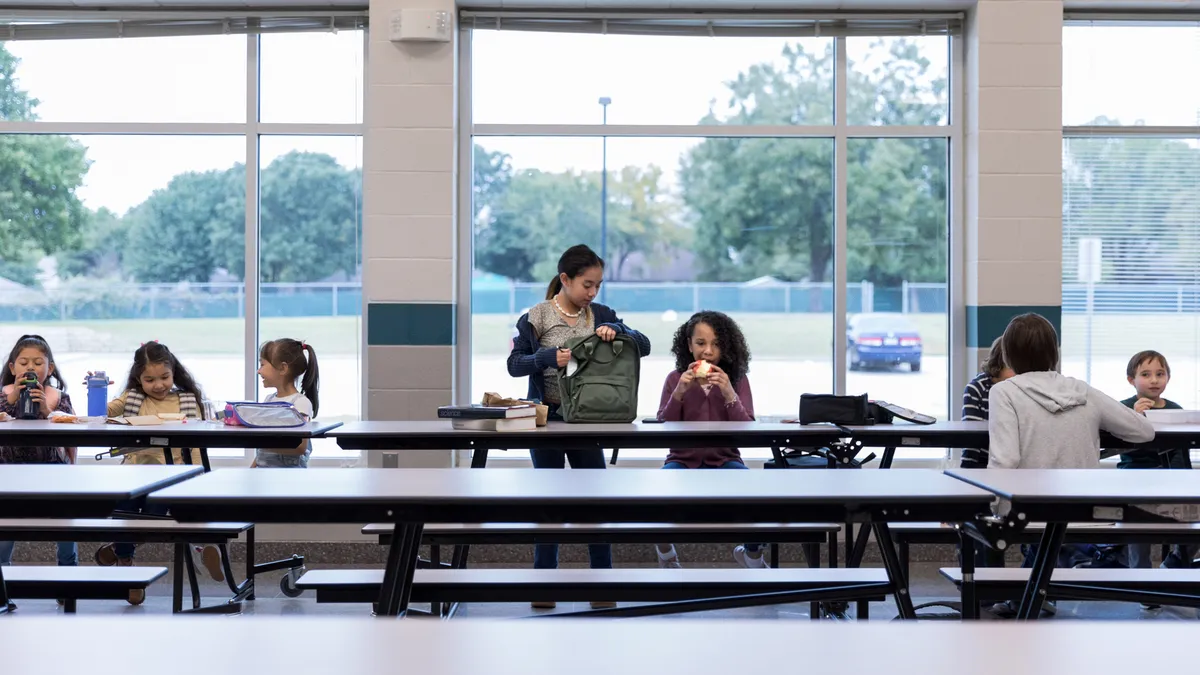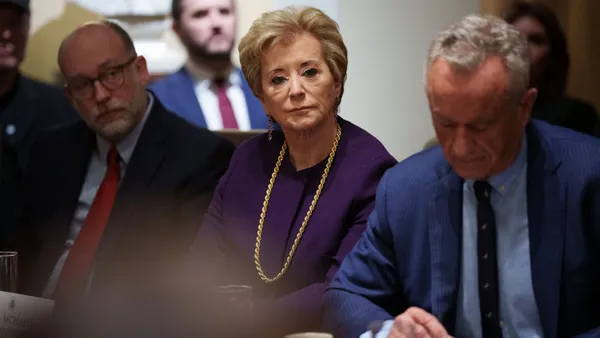The White House announced Tuesday that it plans to work with Congress to expand access to free school meals for 9 million more children by 2032 as a first step toward creating a pathway to universal school meals.
The plan was outlined among other steps in the White House’s National Strategy on Hunger, Nutrition and Health one day before the Biden administration is to convene a conference on the topic. Ahead of the gathering, President Joe Biden has set an ambitious goal to end hunger and increase healthy eating and physical activity by 2030 to reduce the number of Americans with diet-related diseases.
“While school meals have demonstrated strong positive impacts on children’s nutrition and other key outcomes, we have not yet fully leveraged school meals as a core intervention to improve child health or child hunger,” the White House said in the plan.
The White House also announced support for expanding the Summer Pandemic Electronic Benefits Transfer program, which provided benefits to families of more than 36 million children to pay for groceries during summer 2021. “Summer-EBT decreases the prevalence of the most severe food insecurity among children and improves children’s nutritional outcomes,” the White House said.
Recent U.S. Department of Agriculture data shows food insecurity among children decreased across race and ethnicity between 2020 and 2021 when pandemic-era universal school meal waivers were first in place.
After the congressional provision expired June 30, an independent Task Force on Hunger, Nutrition and Health composed of professors, advocates and food industry executives was among those advising the White House to bring back universal school meals.
Days before the pandemic-era meal waivers were set to expire, Congress passed the bipartisan Keep Kids Fed Act, which extended some waivers but not universal school meals. Bill co-sponsor Rep. Virginia Foxx, R-North Carolina, said on the House floor that the pending legislation at the time would bring school meal programs back to “regular order.”
“For over two years, Democrats used the permanent pandemic narrative to increase federal spending across the board, including within school meal programs. This has fueled inflation,” Foxx said in June. “This is not only irresponsible but ignores the narrow limits Congress purposefully placed on these programs. Congress never intended to provide universal free breakfasts and lunches to all K-12 students regardless of need.”
With Congress not having acted, some states like California and Maine have begun to create their own universal school meal programs. Even so, most districts are already adjusting to charging some students for meals again this fall while helping parents with children who qualify for free- and reduced-price meals to fill out applications.














